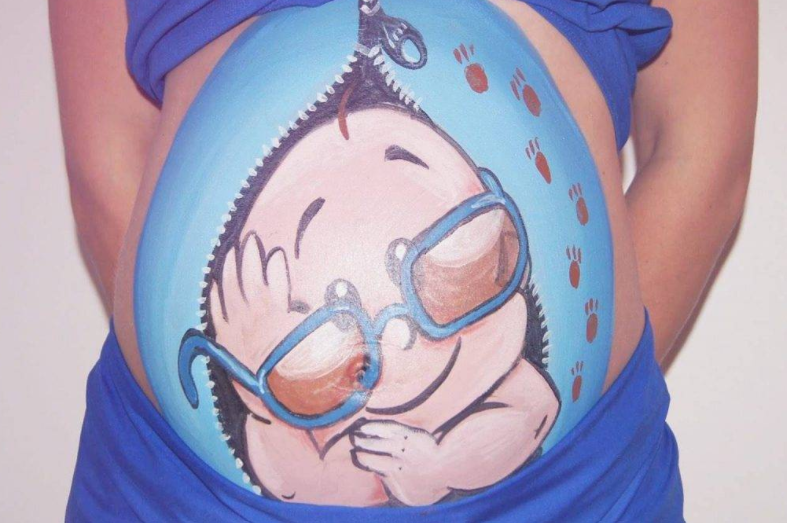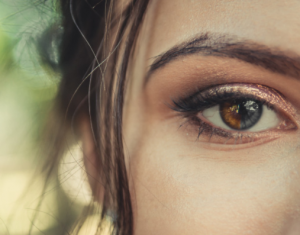How do pregnancy complications affect the eyes?
Pregnancy is a time filled with lots of excitement and emotions— but pregnancy can also have an impact on your eyes.
Every woman hopes for a healthy pregnancy and delivery, and looks forward to the time that they can hold their new bundle of joy in their arms.
Unfortunately, some women experience health problems that can develop during their pregnancy, which can cause an increase in anxiety and nervousness throughout this already emotional time period.
Pregnancy-related complications can cause many different symptoms, some more dangerous than others.
What most people don’t know is that pregnancy can cause vision changes, that may even be the first signs of a general health problem.
1. Preeclampsia
Preeclampsia is a serious condition that can develop when the mother’s blood pressure rises to dangerously high levels. This condition requires immediate medical attention, as it can put both the lives of the mother and baby in danger.
Preeclampsia affects around five percent of expectant women.
The two primary symptoms of preeclampsia include a new-onset of high blood pressure (hypertension) and excess protein in the urine (proteinuria).
Approximately 25 percent of women with severe preeclampsia experience visual symptoms.
Vision changes from preeclampsia usually worsen as the condition becomes more severe, and typically include:
- Blurred vision
- Dark spots or floaters in visual field
- Flashing lights
- Sudden difficulty focusing eyes
- Temporary blindness
- Swelling around eyes
Preeclampsia can also lead to retinal swelling and bleeding which can threaten vision loss, if not treated properly.
2. Gestational diabetes
Gestational diabetes is a temporary condition that can develop during pregnancy and cause blurry vision.
Diabetes can occur when there is a high concentration of glucose levels in the bloodstream. Diabetes can cause damage to the blood vessels throughout the body, including the tiny blood vessels in the retina at the back of the eye.
Preexisting diabetes must be monitored carefully during pregnancy because pregnancy can worsen diabetes and put your eyes at risk of diabetic eye damage.
If uncontrolled, diabetes can lead to a serious eye disease called diabetic retinopathy, and even threaten retinal detachment and vision loss.
While gestational diabetes typically goes away after delivery, it is still important to monitor your blood glucose levels and eye health throughout your pregnancy.
Diabetes can cause the following visual changes:
- Blurry vision
- Dark or empty spots in visual field
- Floaters
- Impaired color vision
If you notice any changes to your vision at any time during your pregnancy, contact an eye doctor near you.
SEE RELATED: 9 Ways Eyes Change With Age
3. Changes to eye pressure
Normal eye pressure ranges from anywhere between 10 and 21 mmHg (millimeters of mercury), and fluctuates throughout the day.
During pregnancy, your eye pressure can decrease. If it falls too low, blurry vision, with an increased risk of retinal detachment can occur.
Pregnancy can also cause your eye pressure to increase as a result of fluid retention. Eye pressure that rises too high can increase your risk of glaucoma.
4. Worsening dry eye
The hormonal changes that take place during pregnancy can negatively impact tear production. When the eyes don’t produce enough tears, dry eye symptoms will often result.
If you have already been diagnosed with dry eyes, you may find that your pregnancy is actually worsening your dry eye symptoms.
Common dry eye symptoms include:
- Red eyes
- Irritated or sore eyes
- Itchy eyes
- Swollen eyelids
While your dry eye symptoms will likely disappear a few weeks after birth, there are effective treatments that can help you find relief as you count down the days until your due date.
Mild to moderate cases of dry eye are often treated with artificial tears lubricating eye drops, gels or ointments, while severe cases may require a prescription eye drop or in-office dry eye treatment.
When to see an eye doctor
If you have a preexisting condition or are experiencing any symptoms that may signal a more serious condition, it is important to see your eye doctor for a full eye exam and follow up exams during your pregnancy.
Inform your eye doctor if you notice any of the following symptoms:
- Blurry vision
- Double vision
- Dry eyes
- Itchy eyes
- Burning
- Flashing lights
- Floaters
Pregnancy-related complications should be diagnosed and treated as soon as possible to protect your health and the health of your baby.
LEARN MORE: Guide to Eye Health
If you are experiencing any vision changes during your pregnancy, schedule an appointment with an eye doctor.
Your eye doctor can rule out any serious vision problems and discuss any concerns you may have about your vision during your pregnancy.


